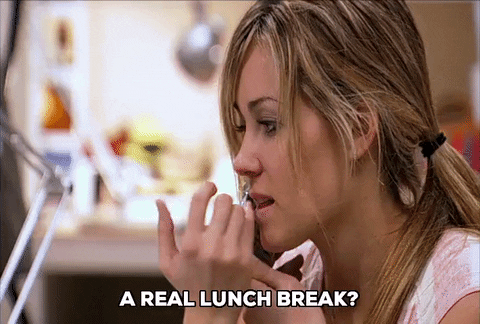France is a secular country, but there sure is one religion that all French people share—food and eating.
With its rituals, omnipresence, and etiquette, eating is a pillar of French culture and social interaction. It not only has an impact on how families interact and bodies are fed but it’s a central part of our professional lives, from closing deals to building strong team relationships.
So besides helping us enjoy a glass of wine with some cheese, what can French eating culture teach us about the importance of taking the time to focus on interacting with each other at the workplace?
The Value Of The Ritual
In 2010, UNESCO declared French gastronomic meals a part of the Intangible Cultural Heritage of Humanity, officially highlighting the importance of French rituals at the table for the world.
In their own words,
“[t]he gastronomic meal should respect a fixed structure, commencing with an apéritif (drinks before the meal) and ending with liqueurs, containing in between at least four successive courses, namely a starter, fish and/or meat with vegetables, cheese and dessert. […] The gastronomic meal draws circles of family and friends closer together and, more generally, strengthens social ties.”
They highlight that it “emphasizes togetherness,” which is a great tie to all the ways in which we try to build culture and connection as teams.
As a French woman who has been living abroad for almost a decade now (and married to a Brazilian man), I have learned the hard way that my table rituals were actually not shared by everyone in the world. Although perfectly logical to me, spending long hours at the table may feel like a burden to non-French people.

Nonetheless, I have come to appreciate, with a deeper understanding, what this tradition can bring to social interactions, whether at work or at home, as well as my wellbeing as an individual.
Taking The Time To Take The Time
“When the American sociologist David Lerner visited France in 1956 he was stunned by the inflexibility of the French regarding food,” says fellow sociologist Claude Fischler, head of research at the French National Centre for Scientific Research. “He couldn’t understand why they all ate at a fixed time, like at the zoo.”
French people spent an average of 2 hours and 22 minutes per day eating in 2010, 13 minutes more time than in 1986, all while following the strict rule of a breakfast, a lunch, and a supper with almost no snacking in between.
A good indicator of this schedule is the opening hours of restaurants in France—which most likely are serving food between 12:00 and 2:00 PM, then 7:00PM to 10:00PM. Even though it might seem a very rigid practice for outsiders, it actually brings a lot of benefits to those who live by it.
Take A Real Break
When everybody takes a break at the same time, they will most likely be focusing on actually taking a break and won’t try to work and eat, or drive and eat, or drive and work and eat, or… you get the idea.
Promoting a culture of taking a real, lengthy break can help your team disconnect from work and spend valuable time together. A lot of productivity advice, such as the Pomodoro Technique, recommends that you break your day into different blocks and relax in between those blocks.
Lunch is a very healthy, and easy, way to stop for at least 30 minutes to take a step back from the work you are accomplishing, helping to clear your mind and look at tasks from a different angle.

Take Care Of Your Body, Eat Slowly
A typical lunch break at work in France lasts at least 1 hour and is never taken at your desk. We value eating slowly and being seated at a table to do so. If you are having a “social lunch” with your team or a client, plan for a 2 hour break—or even more if it’s an important meeting.
In that case, you’ll want ample time for socializing (and probably a more gargantuesque feast). The quality and quantity of food definitely varies with the importance you give to the people you are eating with.
The benefits of slow eating include better digestion, better hydration, easier weight loss or maintenance and, of course, taking the time to really enjoy the taste of your food (bon appétit!).
This is not necessarily about staying fit, it is more about the short term benefits: If you take the time to really nurture your body, you will improve your capacity to focus, think, and, most likely, enjoy the rest of your day.
People Are As Fundamental As Food
But why on earth do we spend so much time eating?
Beyond biology and the fact that everyone loves some dessert, eating is actually just an excuse to spend valuable time with people. In the French culture, it’s not only a functional activity, it is first and foremost the place and time where relationships are developed.
From bonding with your colleagues to closing business deals with clients, the table is where people interact in France. Spending time together fosters conversation, allows debates and brainstorming to flourish naturally, and encourages ideas to flow creatively.
Culturally, French assign more value to their relationships with others than to time and money. We believe that getting to know someone outside the boardroom will help build a trustful relationship that will be valuable over time.
French people are brought up experiencing this type of interaction from childhood. As Pamela Druckerman observes in her book, Bringing up Bébé, French children are taught from an early age to eat 3 times a day without snacking. At school, the lunch break lasts between 90 minutes and 2 hours, during which a four-course meal is eaten while seated.
French etiquette recommends that everyone starts eating at the same time and leaves the table only once everybody is finished. All of these details are really strongly embedded in the French culture, making them second nature.
Apply The French Mindset To Your Next Business Meal
If you are not French, you can still channel these habits by being more conscious of the people you eat with, and how you interact with them during mealtime.
If you currently don’t spend your lunch eating with others, you can start implementing sporadic lunch dates with people you’d like to get to know more. Eating at the table with others doesn’t have to be an everyday routine, but it could still be beneficial for you to build relationships and interact with others if you started doing it every month or every week.
And, if by any chance you are doing business in France, remember that you will have a much better chance to build successful connections and close bigger deals if you take the time to take people out for (long) lunch or dinner. Save that 30-minute call for another time! Au revoir!
Next: Boost Your Team’s Productivity With This Swedish Coffee Break







































